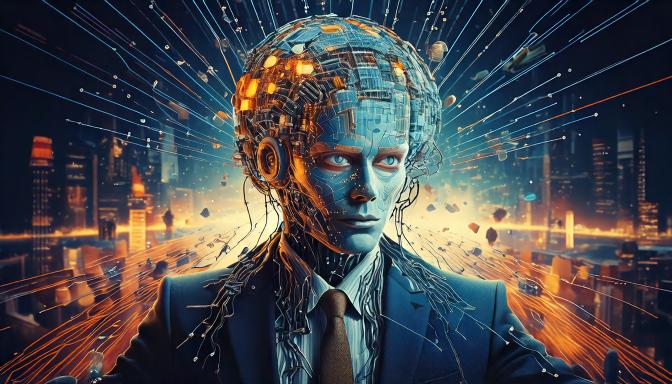But What Is The Cost?
Artificial intelligence transforms people’s engagement with truth, art, literature, and personal identity. As AI-generated content floods the internet, its ability to distort facts, rewrite history, and reshape human experiences has become more apparent. AI is now rewriting books, creating deepfake art, spreading misinformation, and even determining people’s ages online. While some advancements promise new levels of efficiency and creativity, critics argue that AI endangers authenticity, intellectual property, and personal privacy.
From misleading AI chatbots and mass copyright violations to Google’s use of AI to estimate user age, technology’s expanding role is raising serious ethical concerns. This article explores how AI influences truth, creativity, and self-perception, while experts warn about its unchecked societal influence.
What’s Happening & Why This Matters
AI Chatbots Are Distorting Truth
Chatbots like ChatGPT, Gemini, and Claude are meant to provide factual information, but researchers found they often deliver distorted, misleading, or outright false responses. Recent studies revealed that:
- AI chatbots struggled with political and historical accuracy, often reflecting biases in their training data.
- Misinformation spread by AI chatbots could further complicate issues like election integrity and public trust in institutions.
- Tech companies behind these chatbots claim to improve accuracy, but experts warn that fact-checking AI remains challenging due to its reliance on flawed datasets.

Theft of Intellectual Property

AI models are trained on vast amounts of content scraped from the internet, often without consent from authors, artists, and publishers. This has led to massive legal battles over copyright infringement and stolen creative works:
- Thomson Reuters recently won a landmark AI copyright case, highlighting concerns about AI-generated content using proprietary data.
- Artists and writers have accused AI developers of training their models on copyrighted material without compensation.
- AI’s role in rewriting books and reproducing famous art styles raises ethical questions about ownership, compensation, and creative originality.
Using AI to Determine Users’ Ages
Google is leveraging machine learning algorithms to estimate users’ ages for more accurate advertising, security, and content moderation:
- AI can now analyze browsing habits, voice data, and facial recognition to predict a person’s age range.
- This technology aims to protect minors from age-restricted content, but privacy advocates warn about the risks of AI-driven personal profiling.
- Google argues that AI-based age estimation improves user experience, but concerns remain over how this data is collected and used.

TF Summary: What’s Next
AI is redefining how people consume information, create art, and interact with technology, but it also introduces tremendous risks related to misinformation, copyright violations, and privacy breaches. Experts urge stricter AI regulation, transparency in training data, and ethical safeguards to prevent misuse and exploitation. As AI continues reshaping truth, creativity, and identity, society must strike a balance between innovation and accountability.
— Text-to-Speech (TTS) provided by gspeech


